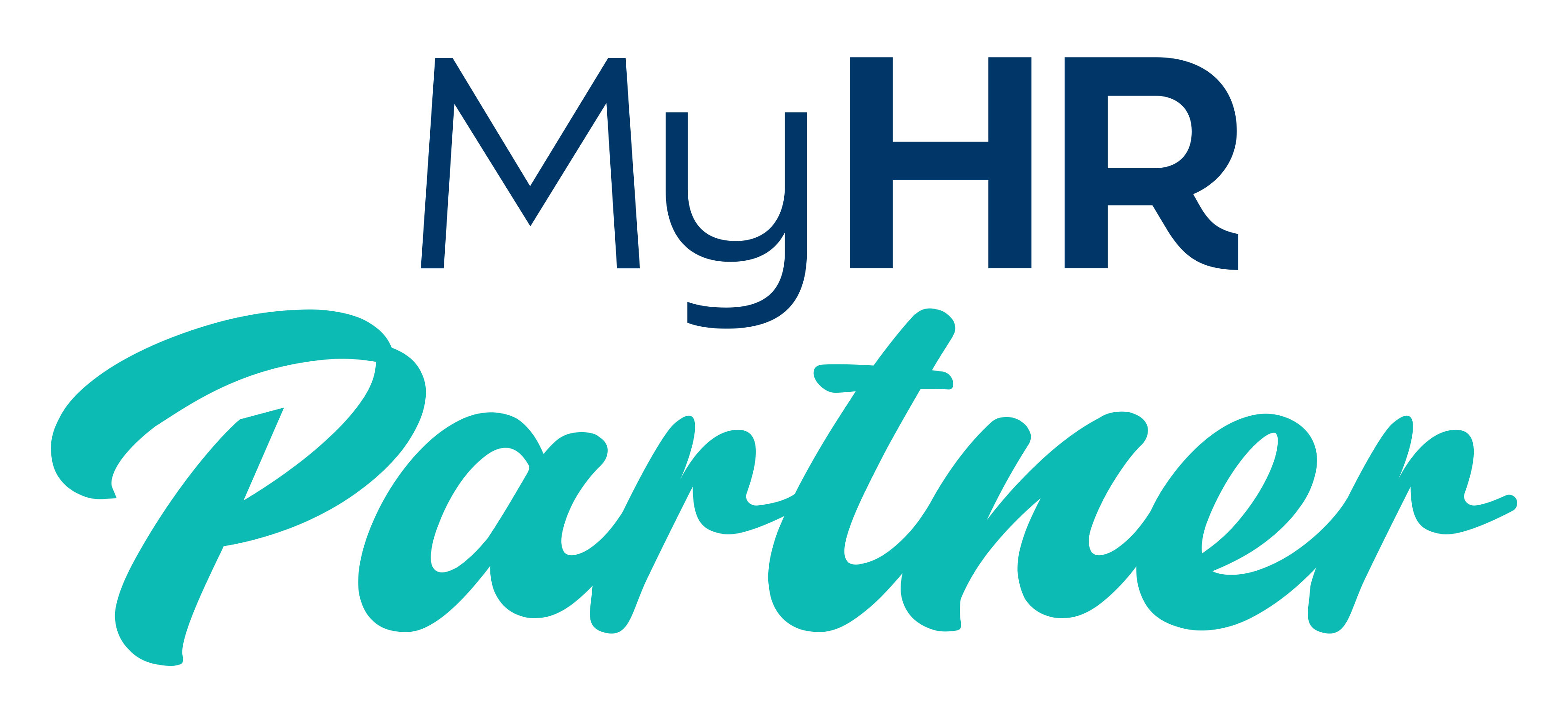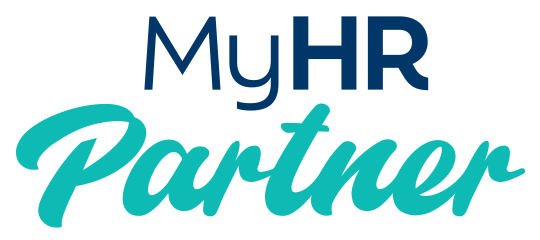Unlocking the Power of Human Resources: Welcome to Our Blog!
Discover HR updates, the latest trends, best practices, and innovative strategies shaping the world of Human Resources in Australia. From talent acquisition to employee engagement, we delve into the intricacies of HR management to empower organisations.
Let's navigate the dynamic landscape of HR together.

Podcast Episode 18: Enhancing Team Performance: Implementing Effective Training Programs
Today, in another episode of the My HR Partner Podcast, we’re diving deep into the vital role of ongoing training for small to medium-sized enterprises (SMEs). Training isn’t just about onboarding new hires; it’s a continuous journey that can significantly impact your business’s success.
The Importance of Ongoing Training
Training is crucial for any business, but especially for SMEs looking to stay competitive and thrive. It’s not just about improving skills or meeting compliance requirements; it’s about making your employees feel valued and engaged. Effective training programs don’t have to be costly or complex. They can range from informal on-the-job mentoring to formal qualifications, and everything in between.
Types of Training Programs
The right training program depends on various factors including the nature of your business and the specific needs of your employees. Here’s a breakdown:
On-the-Job Training: This includes mentoring and hands-on learning experiences that are directly relevant to employees’ day-to-day roles.
Formal Qualifications: Some professions require ongoing education or certifications, such as accountants, lawyers, real estate agents and many other professions who need CPD points to maintain their accreditation.
Online Training: With the rise of digital platforms, online courses offer flexibility and cost-effectiveness. These can be particularly useful for technical skills or industry-specific knowledge.
Workshops and Seminars: Occasionally, sending employees to industry conferences or workshops can provide valuable insights and networking opportunities.
Planning Effective Training Programs
To create a training program that truly benefits your business, consider the following:
Define Clear Objectives: What do you want to achieve with this training? Ensure that the goals are specific and aligned with your business needs.
Engage Employees: Training should be relevant and valuable to your employees. If they see the benefit, they’ll be more engaged and motivated.
Gather Feedback: Use feedback forms to evaluate the effectiveness of your training programs. Ask questions about relevance, presentation quality, and overall impact. This will help you refine and improve future training.
Measure Impact: Determine how you’ll measure the success of your training initiatives. Whether through improved performance metrics, increased employee satisfaction, or other indicators, having measurable outcomes will help you gauge the effectiveness of your training.
Cost-Effective Training Solutions
You don’t have to break the bank to provide effective training. Here are some cost-effective options:
Free Online Resources: Many platforms offer free or low-cost online courses on a wide range of topics.
In-House Training: Leverage internal expertise by having experienced staff or leaders conduct training sessions.
Industry Associations: Often, these organisations provide resources, webinars, and training opportunities at a reduced cost.
Innovative Tools: Explore new technologies like AI, which can offer innovative training solutions and keep your team ahead of the curve.
Customising Training to Your Business
No two businesses are the same, and neither should be their training programs. Tailor your training to fit your business needs and the interests of your employees. For instance, if your business is tech-focused, consider integrating AI tools and resources. If it’s a more hands-on industry, practical workshops might be more suitable.
Conclusion
Investing in your team’s growth is a direct investment in your business’s success. By implementing effective training programs, you not only enhance your employees’ skills but also boost their morale and commitment to your company. For more insights and support on creating impactful training solutions, visit My HR Partner.
Feel free to like, share, and subscribe to our podcast for more valuable information. Stay tuned for our next episode, where we’ll explore navigating the termination process. Until then, keep learning and leading, and best of luck with your training initiatives!
Listen to the podcast here: https://myhrp.com.au/podcast-episode-18
Our Latest Blog Post

Podcast Episode 18: Enhancing Team Performance: Implementing Effective Training Programs
Today, in another episode of the My HR Partner Podcast, we’re diving deep into the vital role of ongoing training for small to medium-sized enterprises (SMEs). Training isn’t just about onboarding new hires; it’s a continuous journey that can significantly impact your business’s success.
The Importance of Ongoing Training
Training is crucial for any business, but especially for SMEs looking to stay competitive and thrive. It’s not just about improving skills or meeting compliance requirements; it’s about making your employees feel valued and engaged. Effective training programs don’t have to be costly or complex. They can range from informal on-the-job mentoring to formal qualifications, and everything in between.
Types of Training Programs
The right training program depends on various factors including the nature of your business and the specific needs of your employees. Here’s a breakdown:
On-the-Job Training: This includes mentoring and hands-on learning experiences that are directly relevant to employees’ day-to-day roles.
Formal Qualifications: Some professions require ongoing education or certifications, such as accountants, lawyers, real estate agents and many other professions who need CPD points to maintain their accreditation.
Online Training: With the rise of digital platforms, online courses offer flexibility and cost-effectiveness. These can be particularly useful for technical skills or industry-specific knowledge.
Workshops and Seminars: Occasionally, sending employees to industry conferences or workshops can provide valuable insights and networking opportunities.
Planning Effective Training Programs
To create a training program that truly benefits your business, consider the following:
Define Clear Objectives: What do you want to achieve with this training? Ensure that the goals are specific and aligned with your business needs.
Engage Employees: Training should be relevant and valuable to your employees. If they see the benefit, they’ll be more engaged and motivated.
Gather Feedback: Use feedback forms to evaluate the effectiveness of your training programs. Ask questions about relevance, presentation quality, and overall impact. This will help you refine and improve future training.
Measure Impact: Determine how you’ll measure the success of your training initiatives. Whether through improved performance metrics, increased employee satisfaction, or other indicators, having measurable outcomes will help you gauge the effectiveness of your training.
Cost-Effective Training Solutions
You don’t have to break the bank to provide effective training. Here are some cost-effective options:
Free Online Resources: Many platforms offer free or low-cost online courses on a wide range of topics.
In-House Training: Leverage internal expertise by having experienced staff or leaders conduct training sessions.
Industry Associations: Often, these organisations provide resources, webinars, and training opportunities at a reduced cost.
Innovative Tools: Explore new technologies like AI, which can offer innovative training solutions and keep your team ahead of the curve.
Customising Training to Your Business
No two businesses are the same, and neither should be their training programs. Tailor your training to fit your business needs and the interests of your employees. For instance, if your business is tech-focused, consider integrating AI tools and resources. If it’s a more hands-on industry, practical workshops might be more suitable.
Conclusion
Investing in your team’s growth is a direct investment in your business’s success. By implementing effective training programs, you not only enhance your employees’ skills but also boost their morale and commitment to your company. For more insights and support on creating impactful training solutions, visit My HR Partner.
Feel free to like, share, and subscribe to our podcast for more valuable information. Stay tuned for our next episode, where we’ll explore navigating the termination process. Until then, keep learning and leading, and best of luck with your training initiatives!
Listen to the podcast here: https://myhrp.com.au/podcast-episode-18
We provide HR advice and support. We have trusted partners to assist with any employment law issues
outside of our scope.
More info
Suite 17, 741-743 Lawrence Hargrave Drive, Coledale NSW 2515
Suite 4, 133 Wharf Street, Tweed Heads NSW 2485
ABN 30 644 527 015

Get HR Advice from our HR expert
Our Latest Blog Post

Podcast Episode 18: Enhancing Team Performance: Implementing Effective Training Programs
Today, in another episode of the My HR Partner Podcast, we’re diving deep into the vital role of ongoing training for small to medium-sized enterprises (SMEs). Training isn’t just about onboarding new hires; it’s a continuous journey that can significantly impact your business’s success.
The Importance of Ongoing Training
Training is crucial for any business, but especially for SMEs looking to stay competitive and thrive. It’s not just about improving skills or meeting compliance requirements; it’s about making your employees feel valued and engaged. Effective training programs don’t have to be costly or complex. They can range from informal on-the-job mentoring to formal qualifications, and everything in between.
Types of Training Programs
The right training program depends on various factors including the nature of your business and the specific needs of your employees. Here’s a breakdown:
On-the-Job Training: This includes mentoring and hands-on learning experiences that are directly relevant to employees’ day-to-day roles.
Formal Qualifications: Some professions require ongoing education or certifications, such as accountants, lawyers, real estate agents and many other professions who need CPD points to maintain their accreditation.
Online Training: With the rise of digital platforms, online courses offer flexibility and cost-effectiveness. These can be particularly useful for technical skills or industry-specific knowledge.
Workshops and Seminars: Occasionally, sending employees to industry conferences or workshops can provide valuable insights and networking opportunities.
Planning Effective Training Programs
To create a training program that truly benefits your business, consider the following:
Define Clear Objectives: What do you want to achieve with this training? Ensure that the goals are specific and aligned with your business needs.
Engage Employees: Training should be relevant and valuable to your employees. If they see the benefit, they’ll be more engaged and motivated.
Gather Feedback: Use feedback forms to evaluate the effectiveness of your training programs. Ask questions about relevance, presentation quality, and overall impact. This will help you refine and improve future training.
Measure Impact: Determine how you’ll measure the success of your training initiatives. Whether through improved performance metrics, increased employee satisfaction, or other indicators, having measurable outcomes will help you gauge the effectiveness of your training.
Cost-Effective Training Solutions
You don’t have to break the bank to provide effective training. Here are some cost-effective options:
Free Online Resources: Many platforms offer free or low-cost online courses on a wide range of topics.
In-House Training: Leverage internal expertise by having experienced staff or leaders conduct training sessions.
Industry Associations: Often, these organisations provide resources, webinars, and training opportunities at a reduced cost.
Innovative Tools: Explore new technologies like AI, which can offer innovative training solutions and keep your team ahead of the curve.
Customising Training to Your Business
No two businesses are the same, and neither should be their training programs. Tailor your training to fit your business needs and the interests of your employees. For instance, if your business is tech-focused, consider integrating AI tools and resources. If it’s a more hands-on industry, practical workshops might be more suitable.
Conclusion
Investing in your team’s growth is a direct investment in your business’s success. By implementing effective training programs, you not only enhance your employees’ skills but also boost their morale and commitment to your company. For more insights and support on creating impactful training solutions, visit My HR Partner.
Feel free to like, share, and subscribe to our podcast for more valuable information. Stay tuned for our next episode, where we’ll explore navigating the termination process. Until then, keep learning and leading, and best of luck with your training initiatives!
Listen to the podcast here: https://myhrp.com.au/podcast-episode-18
We provide HR advice and support.
We have trusted partners to assist with
any employment law issues outside
of our scope.
More info
PO Box 1079
Coolangatta QLD 4225
ABN 30 644 527 015
Get HR Advice from our HR expert








